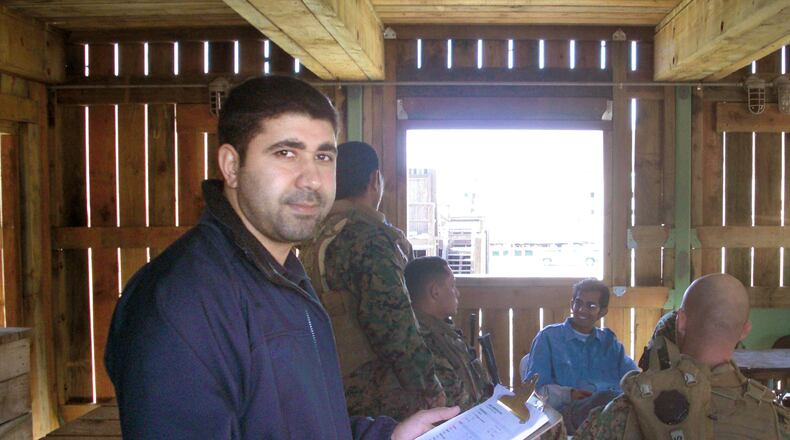SPECIAL REPORT: Uncertain fate for local refugees
Al-Hamdani’s father fought in an unsuccessful U.S.-encouraged Shiite uprising against Iraqi dictator Saddam Hussein shortly after the first Gulf War, Al-Hamdani said last week. The family hadn’t heard from his father in months and feared he was dead when one night his mother came into his room.
“I remember her coming to my bed and saying, ‘Your father is alive and we are going to smuggle you out of the country,’” he said.
Al-Hamdani’s mother and four siblings re-united with their father in a refugee camp in Rafha, Saudi Arabia. There, they stayed for 18 months as their refugee application was approved first by the United Nations and then by U.S. officials.
RELATED: Nearly 20K Ohioans from ‘banned’ countries
“You’re living in a tent in the middle of the desert heat,” he said. There was no school, desert storms were common and food and water was trucked in, he recalled.
“Not everyone in the refugee camp, because of the stringent background checks, made it out of the refugee camp,” he said.
Al-Hamdani’s family found Dayton welcoming. They became citizens. He went to school, graduating from Wright State University and later the University of Dayton.
He worked for several years as an Iraqi cultural instructor for the U.S. military after the surge of 2007. He and other refugees helped train U.S. marines at Camp Pendleton. Others in Iraq who worked as guides or interpreters are currently seeking refugee status because their work with the U.S. military puts their families at risk.
“How stringent can you make it?” he asked of the vetting. “Two years? Three years? Four years?”
“(America) is the light on top of the hill people run to. Now it’s like we are turning off the light and saying, ‘Please stay out.’”
RELATED: 5 men from ‘banned’ countries in local jail; Here’s why they’re there
About the Author

